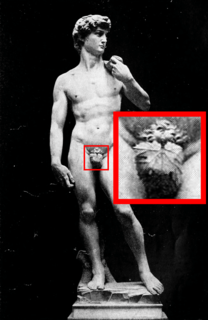This article needs additional citations for verification .(October 2010) (Learn how and when to remove this template message) |
This article includes a list of references, related reading or external links, but its sources remain unclear because it lacks inline citations .(March 2016) (Learn how and when to remove this template message) |
The Journalists Association of (Western) Samoa (JAWS) is a national media association for the Independent State of Samoa. JAWS is an independent body made up of local journalists working in the print, online, television and radio media. JAWS promotes the role of a free media in Samoan society, and protects the rights of journalists in Samoa. JAWS is a legally registered incorporated society with the Ministry of Commerce Industry and Labour. JAWS issues statements regularly in regard to freedom of the press in Samoa.

A journalist is a person who collects, writes, or distributes news or other current information to the public. A journalist's work is called journalism. A journalist can work with general issues or specialize in certain issues. However, most journalists tend to specialize, and by cooperating with other journalists, produce journals that span many topics. For example, a sports journalist covers news within the world of sports, but this journalist may be a part of a newspaper that covers many different topics.
Freedom of the press or freedom of the media is the principle that communication and expression through various media, including printed and electronic media, especially published materials, should be considered a right to be exercised freely. Such freedom implies the absence of interference from an overreaching state; its preservation may be sought through constitutional or other legal protections.
In 2008 the International Federation of Journalists (IFJ) issued one statement in support of a complaint made by JAWS. The complaint was in regard to the censorship of the media by the office of the Ombudsman. IFJ issued a support statement calling for the lifting of the ban on the Samoan media. In 2009 in response to a statement by JAWS, the IFJ issued another statement supporting the organisation in discouraging the harassment of journalists at the Samoan courts.

The International Federation of Journalists (IFJ) is a global union federation of journalists' trade unions—the largest in the world. The organization aims to protect and strengthen the rights and freedoms of journalists. It is also dedicated to working for solidarity, social justice, labor rights, globalization, democracy, human rights, and fighting poverty and corruption.

Censorship is the suppression of speech, public communication, or other information, on the basis that such material is considered objectionable, harmful, sensitive, or "inconvenient". Censorship can be conducted by a government private institutions, and corporations.
Harassment covers a wide range of behaviors of an offensive nature. It is commonly understood as behavior that demeans, humiliates or embarrasses a person, and it is characteristically identified by its unlikelihood in terms of social and moral reasonableness. In the legal sense, these are behaviors that appear to be disturbing, upsetting or threatening. They evolve from discriminatory grounds, and have an effect of nullifying or impairing a person from benefiting their rights. When these behaviors become repetitive they are defined as bullying. Sexual harassment refers to persistent and unwanted sexual advances even after gently refusing, typically in the workplace, where the consequences are potentially very disadvantageous to the victim if there is a power imbalance between the perpetrator.





